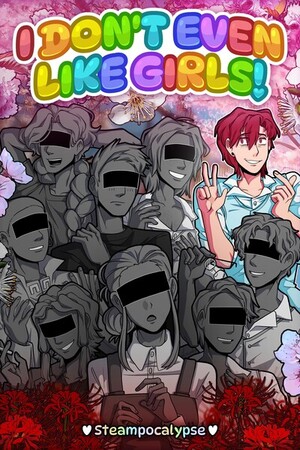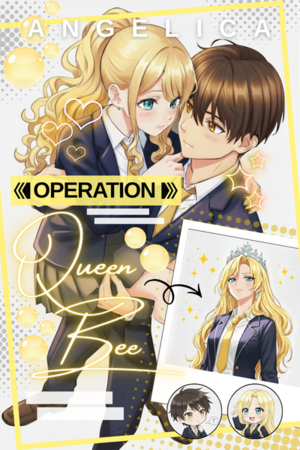Chapter 2:
Charcoal Outline
Monochrome Rainbow
I awoke, but my eyelids defied me. There was no alarm; I’d long since grown adept at silencing its din from the depths of my slumber. Every day I seemed to retreat further into the sanctuary of my oblivion, the dreamless slumber untouched by my stark reality. My bed was my safety net, my duvet my fortress, my solace from the world outside. My eyelids were heavy, as if they bore the weight of the entire world beyond them.
Though I could cut myself off from the world through my eyes, my nose refused to comply. The familiar scent of breakfast found its way through the cracks around my door and flooded my room, an olfactory alarm I was unable to snooze. My mother had always been an early riser. “The day is half over by 10am,” an adage she would often repeat, echoed in my mind, a memory punctuated by her defiance against the tide of change my circumstances had brought.
A soft knock roused me from my reverie.
“Shiro, it’s time to get up,” my mother’s voice gently permeated the stillness.
My instinct was to feign sleep, to hope that she would leave me in my cocoon. But her maternal instincts were unparalleled. She couldn’t be fooled.
I forced my eyelids open and greeted the darkness of a new day. My mother drew the blinds, flooding the room with a blinding white light. My eyes shut in reflex. A groan escaped my lips.
I begrudgingly slid my legs over the side of my bed and sit myself up, each movement a deliberate effort. My feet touched the cold floor. I wanted to get back in.
“I’ve put your breakfast on the table already, Shiro,” my mother said as she left the room, leaving the door wide open.
My feet found my slippers. The aroma of breakfast had permeated every corner of my room now, my stomach grumbling in a biological response I could not control. I stood up, following my nose. Each step was a negotiation between my desire to retreat back to bed and the powerful pull of my mother's warm, familiar cooking.
As I stepped into the living room, I saw my mother in the kitchen. Her back was turned to me, her shoulders slightly hunched over the stovetop. It was as though the weight of her worry was pressing down on her. She was trying, trying so hard, for me. Her prodigal son. I was stealing away pieces of her hope each day.
“Good morning, Shiro,” she said, spinning around with a tender smile that seemed to shrug off every burden in a single moment. I quickly avoided her gaze, my eyes drawn to my feet. “I thought you might be hungry after all that moving yesterday.”
The table before me was a testament to her unwavering care. I experienced the world in sharp contrasts - the darkest shades appeared as stark black, the lightest as blinding white. Everyday items morphed into something unrecognisable and unsettling, their nuances lost to my distorted vision.
But she had made painstaking efforts to make meals palatable for me, not just in taste, but in appearance. She used white miso paste for the soup, a gentle grey against the stark black of the bowl. Each layer of tamagoyaki was accentuated by the contrasting black of a nori sheet forming a neat spiral. She even went so far as to select foods naturally black and white - the pure white of her homemade yoghurt, or the dark shell of sesame seeds on top of the white rice. Each dish she prepared was an act of love, a silent conversation of her care.
Yet, the sight of it all felt so unnatural, so wrong, that I could hardly stomach it. I found myself eating with my eyes shut, merely to avoid the disconcerting image of my meals. I kept it hidden from her - the last thing I wanted was to add to her worries.
She spoke, drawing my attention away from the discomfort. “How did you sleep?” she asked.
“Fine, I guess,” I muttered, my eyes still closed as I halfheartedly chewed.
“You know,” she began, sitting down opposite me, “when you were a little boy you would wake up with so much energy. You’d be out of the door before I could even say good morning!”
I swallowed hard, the lump in my throat threatening to choke me. I could feel her eyes on me, filled with love, maybe a hint of nostalgia and longing for the days that seemed so distant now.
“Your father used to say you were like a little ball of sunshine, ready to paint the world with your laughter and your drawings.”
I dared not open my eyes, fearing the well of emotions might spill over. The way she spoke of the past, it was like she was trying to bridge the gap, reach out to me through the void that had enveloped me.
“You were always drawing, Shiro. Trees, the river, our old cat… You were fascinated with everything,” she added, her voice almost a whisper now.
I clenched my fist, my nails digging into my palm. My chest felt tight.
“And now, it feels like… like you’ve lost something precious. You’re so far away, even when you’re right here in front of me,” she paused. “But I want you to know, I believe in you. I believe that you will find your way back, just like you used to find your way home after spending the whole day outside.”
Silence enveloped the room. I could hear my own heartbeat. I didn’t want to ignore her, but I didn’t know how to respond. I just sat there frozen, head slung low, fists clenched, eyes closed.
“Eat as much as you like, okay?” She finally said.
I nodded, the slightest of movements. It was all I could manage.
“It’s a beautiful day today, it’s a shame we don’t have any laundry yet,” she said abruptly, getting up from the table.
The weight of her words hung in the air. Her stories of the past weren’t just stories; they were lifelines she was throwing my way. They were reminders of who I was before. But that Shiro wasn’t here anymore.
I sat at the table, unable to muster the strength to eat any more. Each bite had been a distasteful trial. I had lost a lot of weight since the accident.
After some time, I stood up and shuffled my feet towards the bathroom. My movements were deliberate, with mechanical rigidity. Washing my face had become an arduous chore. Brushing my teeth was a tactile reminder of the monotonous mundanity that my life had become.
“Shiro, I’ve unpacked some of your things and put them away, okay?” my mothers voice pierced my thoughts. “And I put your sketchbook on your desk.”
I didn’t respond.
I retreated to my room, where I sat back down on my bed. I was left with only the dull hum of the world beyond my window and the muted shuffling and clattering of my mother unpacking in the other room. These noises, once so mundane, now took on a different meaning, each one a reminder of the world that moved on outside my door while I sat ensnared within my own thoughts.
My room was my sanctuary, its walls providing a refuge from the world beyond. Its confines bringing a measure of solace, yet also echoing back my isolation.
My room was my prison, and hearing my mother’s ceaseless activity beyond the door was my sentence. Each sound she made - the clattering of dishes, the swoosh of fabric, the soft murmurs of a song from her youth - was a testament to her unwavering resilience, her belief in a brighter future that I could not, would not, accept.
Her silent struggle, her covert sacrifice, her hidden pain, all revealed in the tender movements of her labour. My heart clenched every time I heard the muffled shuffling of her feet, the slow rhythm of her work. There was a kindness in the world, a kindness that was as relentless as it was loving. And it was all around me, encapsulated in her every action.
Time became an elusive entity, minutes bleeding into hours in a languid dance of thought and introspection. I was suspended in a state of purgatory, trapped between a past that was growing increasingly faded and a future that was a looming abyss of uncertainty.
I found myself standing in the threshold of my room, staring at the door that separated my world from hers. She, who bore the brunt of my affliction, who shielded me with her unwavering love, who wore her sorrows on her sleeve.
I cracked open the door.
There she was, moving about with the grace of a ballet dancer and the strength of a seasoned soldier. Her movements punctuated by an occasional sigh, her eyes reflecting a hint of desolation yet filled with a mother’s unyielding determination. It was a scene that was achingly beautiful and heart-wrenchingly painful at the same time. I felt an urge to reach out, to share the weight she was carrying, yet I was shackled by the paralytic poison of helplessness.
My guilt was a tempest, tearing at my insides with a ruthless ferocity. It was the gnawing feeling that ate away at my heart each time her hopeful eyes met my feckless gaze. I was her son, the one she had poured her dreams into, the one who was supposed to bring her joy, not this wretched misery. Each silent plea in her eyes, each unshed tear she hid behind her smiles, they were all testaments to my failure. I was like a ghost in my own life, haunting the corridors of our shared existence.
I couldn’t bear it anymore. I couldn't bear to remain within these walls, a prisoner of my own melancholy, a spectator to my own decline. I was suffocating.
I grabbed my coat, ignoring the surprised look in my mother’s eyes, and opened the front door. It was midday and the world outside seemed unusually bright. It may have been a desperate attempt to escape the torture of my prison, to claw my way out of the darkness cracked open by my mother’s nauseating optimism. Even if only for a little while.
She called out behind me, her voice tinged with worry and uncertainty. She was about to prepare lunch. I turned back, meeting her gaze with a feeble smile. “I’m not hungry, mum. I’ll have something later,” I said, my voice barely a whisper. She stood there, at the entrance of the apartment, watching me walk away. I could feel her gaze on my back, a silent prayer on her lips.
As I walked down the unfamiliar corridor, I noticed the sketchbook in my hand. I had grabbed it without thought, a habit from a time when life was more colourful, more vibrant. It was a silent companion to my adventures, a witness to the stories I used to weave with my pencil, and a chronicle of the world I used to see. Holding it in my hands, I couldn’t help but feel something knocking from deep within the darkness. I missed that part of me, the artist who saw the world in a riot of colours, who sketched his dreams and painted his hopes.
For a fleeting moment, I felt a connection, a bridge to my past self. And with that sketchbook in my hand, I stepped out into the world.




Please sign in to leave a comment.